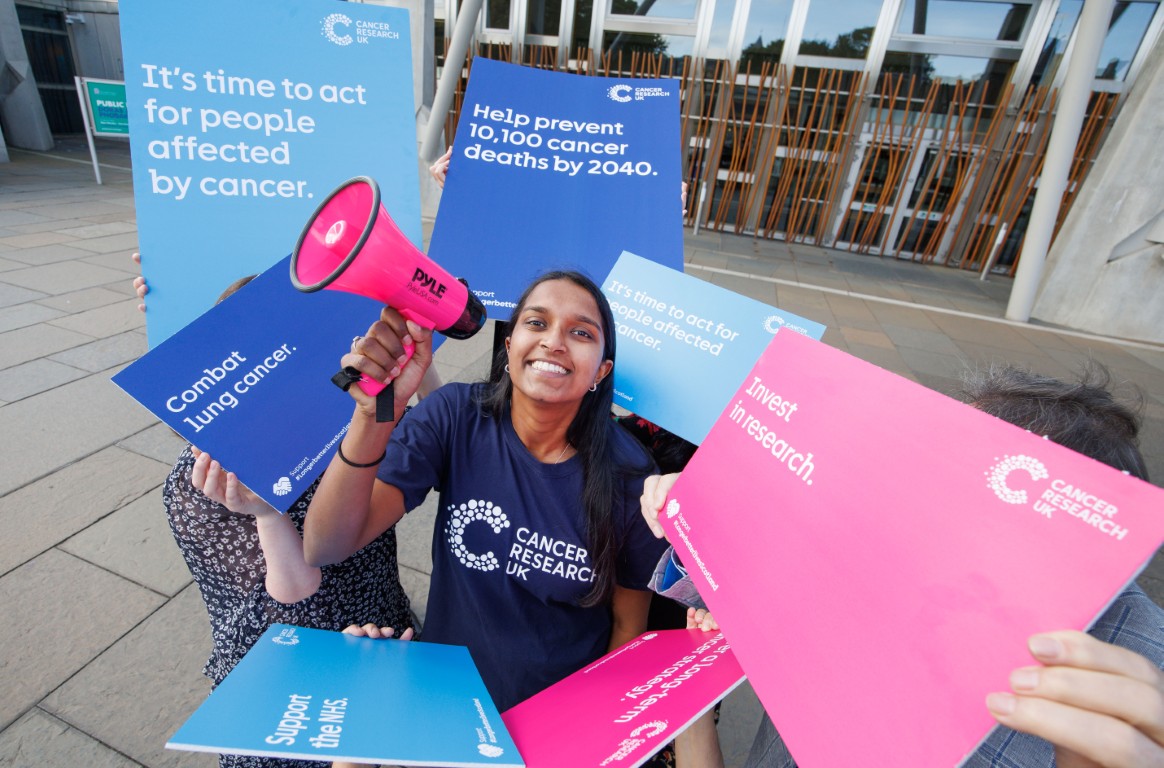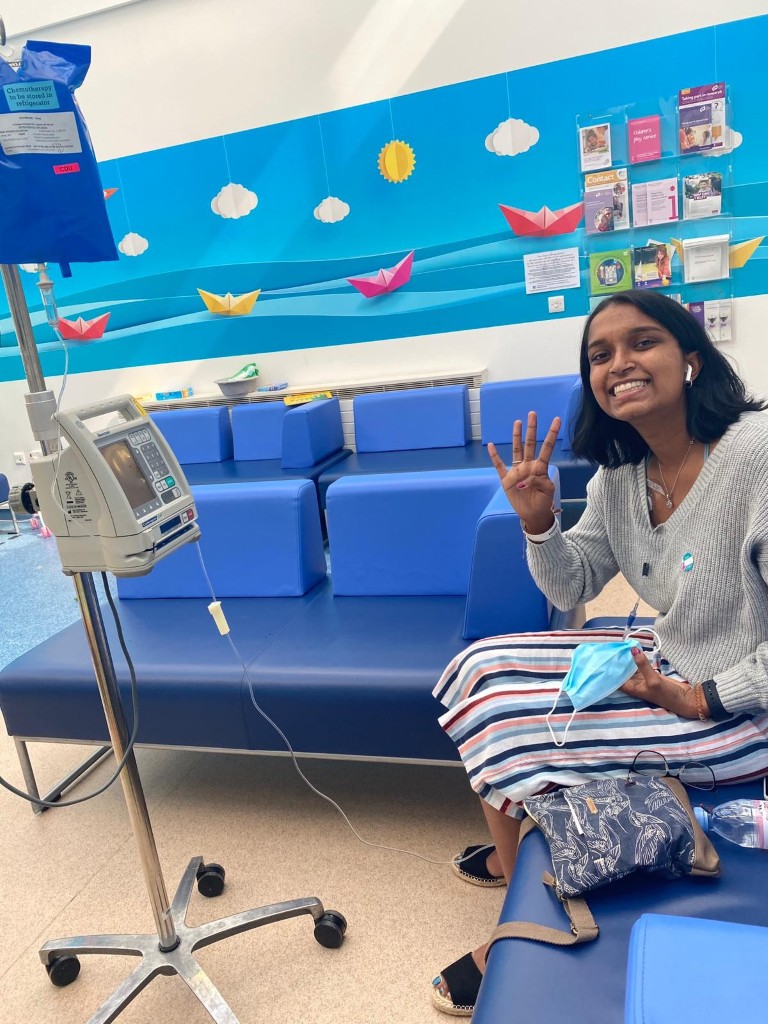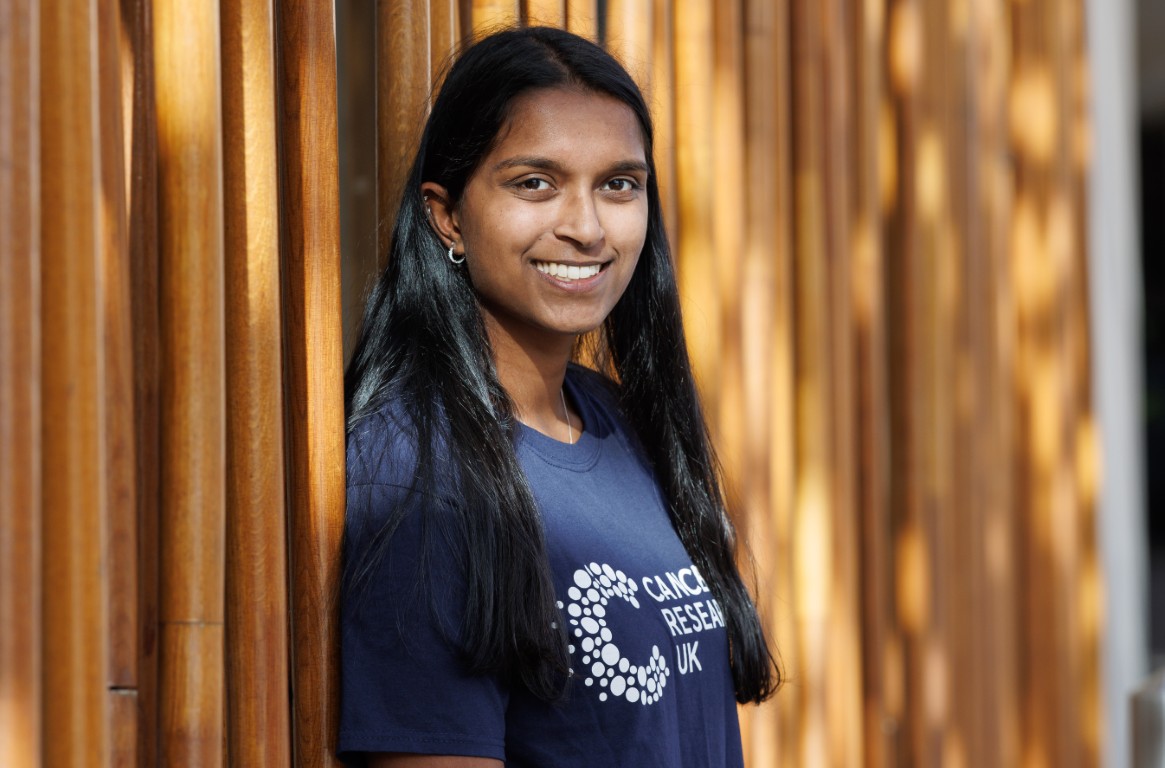Around 10,100 lives could be saved over the next 15 years if the next Scottish Government takes urgent action, according to new analysis from Cancer Research UK.
Ahead of next year’s Scottish Parliament election, the charity has urged politicians to commit to reducing the cancer death rate in Scotland by 15% by 2040 through a fully funded cancer strategy. This ambition would prevent around 10,100 deaths, the charity said.
The call comes as Cancer Research UK publishes its manifesto for Scotland, outlining key recommendations that would make a difference to cancer patients and their families. These include:
- funding and delivering Scotland’s existing 10-year cancer strategy
- tackling long waiting times
- strengthening NHS capacity to meet patient need.
The charity also highlighted the significant cost of cancer to Scotland’s economy. In 2023, premature cancer deaths resulted in the loss of 30,000 productive years of life, with an estimated economic cost of £840 million.
Michelle Mitchell, chief executive of Cancer Research UK, said: “Cancer has an immeasurable impact on people. Alongside the devastating human cost of cancer, this report also reveals there is a significant economic cost.
It’s shocking how many lives could be shattered by this cancer crisis if the current situation fails to improve.”
Campaigners gathered outside the Scottish Parliament to highlight the urgent need to prevent, diagnose and treat cancer, which remains the leading cause of death in Scotland.

Photo: Cancer survivor Shaumya Kularajan from Glasgow joins campaigners outside the Scottish Parliament to launch Cancer Research UK’s Manifesto for Scotland
Photo Credit: Cancer Research UK
Cancer waiting times are also at their worst on record, with only 68.9% of patients in March 2025 being seen within the 62-day target.
Michelle Mitchell continued: “Improving cancer survival in Scotland will require strong political will and decisive leadership.
With next year’s Scottish Parliament elections comes a vital opportunity to transform the NHS by funding the delivery of Scotland’s cancer strategy. This means tackling waiting times, driving innovative reforms, and investing in staff and equipment.
Urgent action must also support life-saving research, earlier diagnoses and treatments, and effective prevention so that more people live longer, healthier lives free from the fear of cancer.”
PhD student Shaumya Kularajan from the University of Glasgow joined campaigners outside the Scottish Parliament.
Shaumya, who is training to be a medical doctor, was diagnosed with Hodgkin lymphoma, a type of blood cancer, in June 2020. She is now in remission and is urging all political parties to put cancer at the heart of their election pledges.
Shaumya, 23, of Glasgow, said: “When you hear those words, ‘It’s cancer’, all you want to know is that you or your loved one have the best possible chance of surviving.
Cancer is the defining health issue of our time and it doesn’t discriminate. So many people’s lives are touched by this disease, and the numbers are only growing. It’s vital that saving lives comes before politics.
We must make sure cancer is at the forefront of the minds of all future Scottish Parliament members so the right investments are made and enough new medical staff are trained, ensuring Scotland has an NHS workforce to meet demand.
That’s why I’m supporting this campaign – I’m determined to help others and spare them from unnecessary heartache.”
Shaumya Kularajan’s story
Shaumya Kularajan was just months away from starting a medicine degree at the University of Glasgow when she first contacted her GP after becoming unwell in the spring of 2020.
After symptoms including night sweats, abdominal pain and weight loss intensified, she was referred to hospital for tests. COVID-19 restrictions meant her family could not visit, leaving Shaumya feeling isolated.
Shaumya said: “I was doubled over in pain. Everyone was telling me it was really unlikely to be cancer as I was young. I felt lonely being in so much pain but not being able to have my family around me.”
On 11 June 2020, Shaumya was diagnosed with Hodgkin lymphoma, a cancer that begins in white blood cells.
“I was only 18 at the time. It felt like everything I thought I knew that was certain about my future had disappeared overnight. It felt like my whole world was collapsing around me when I was first told the news. I thought, ‘why me?’ ‘why do I have cancer?’ It was frightening. Everything I thought I knew about my life at that point changed and I had so much uncertainty ahead of me. But I remember very early on a nurse saying to me, ‘You have cancer but it doesn’t have you.’ I knew I faced a long road but there would come a time when I could finally move on with my life and put treatment behind me.”
In July 2020, Shaumya began six months of chemotherapy treatment, forcing her to defer her university admission by a year. That autumn was particularly tough, as she coped with side effects including nausea, weight loss, mouth ulcers and exhaustion while her schoolfriends started university.
“My dad used to drive me to chemotherapy sessions so we had a lot of good conversations together in the car. I had cravings for a Sri Lankan rice pudding so my dad would drive far and wide to find the right ingredients. My mum is a great cook.”
Her final treatment came on New Year’s Eve 2020, and on 8th February 2021 Shaumya received the news she had been hoping for – her latest scan showed no evidence of disease.
“It was snowing on the day I was told I was in remission. My sister Thivya and I went outside and drew a cancer free sign in the snow. It was a day of celebration for my family, but I knew there were other people in the UK that same day who would be hearing the news for the first time that they had cancer.”
Shaumya began her medical degree in September 2021. This summer, she started a PhD at the University of Glasgow, funded by Cancer Research UK. She is now investigating how children and young people with cancer are affected when they need intensive care, looking at their experiences during and after treatment and how services can be improved.
“It feels like a full circle moment to be here as a cancer researcher rather than a patient. I am extremely grateful to the mentors, friends and family who supported and believed in me and to the incredible NHS staff who looked after me. But I will never forget what it feels like going through treatment for cancer and will do all I can to make things better for people facing the disease today and in the future.”

Photo: Shaumya Kularajan during treatment for cancer
Photo Credit: Cancer Research UK

